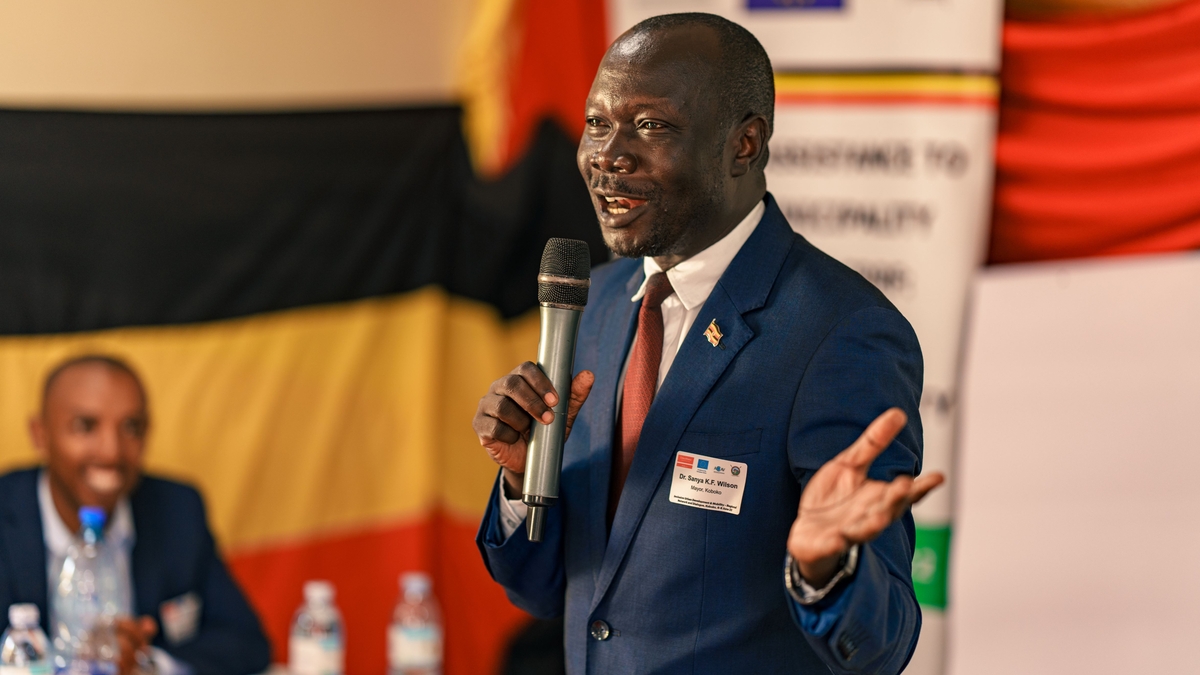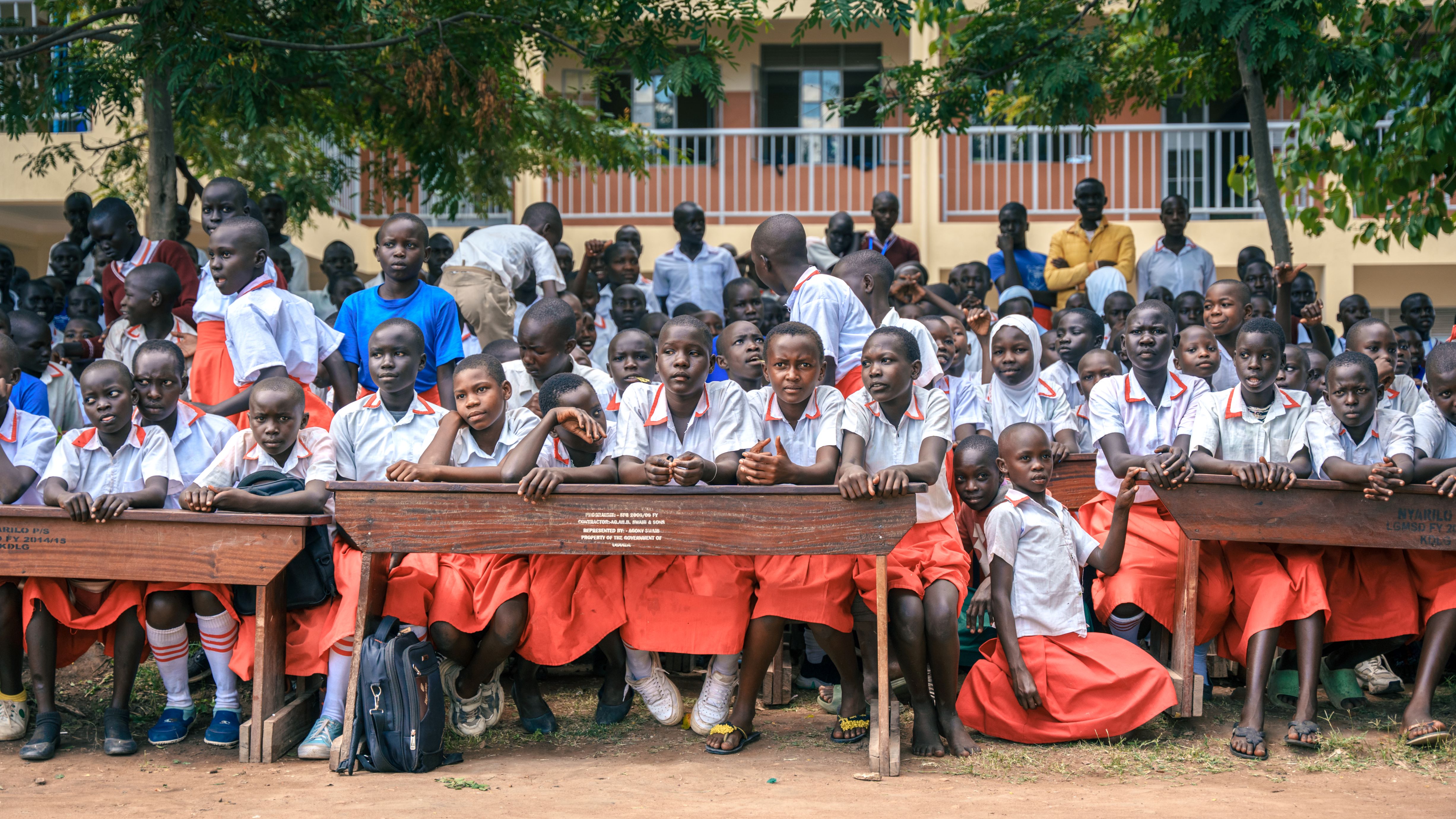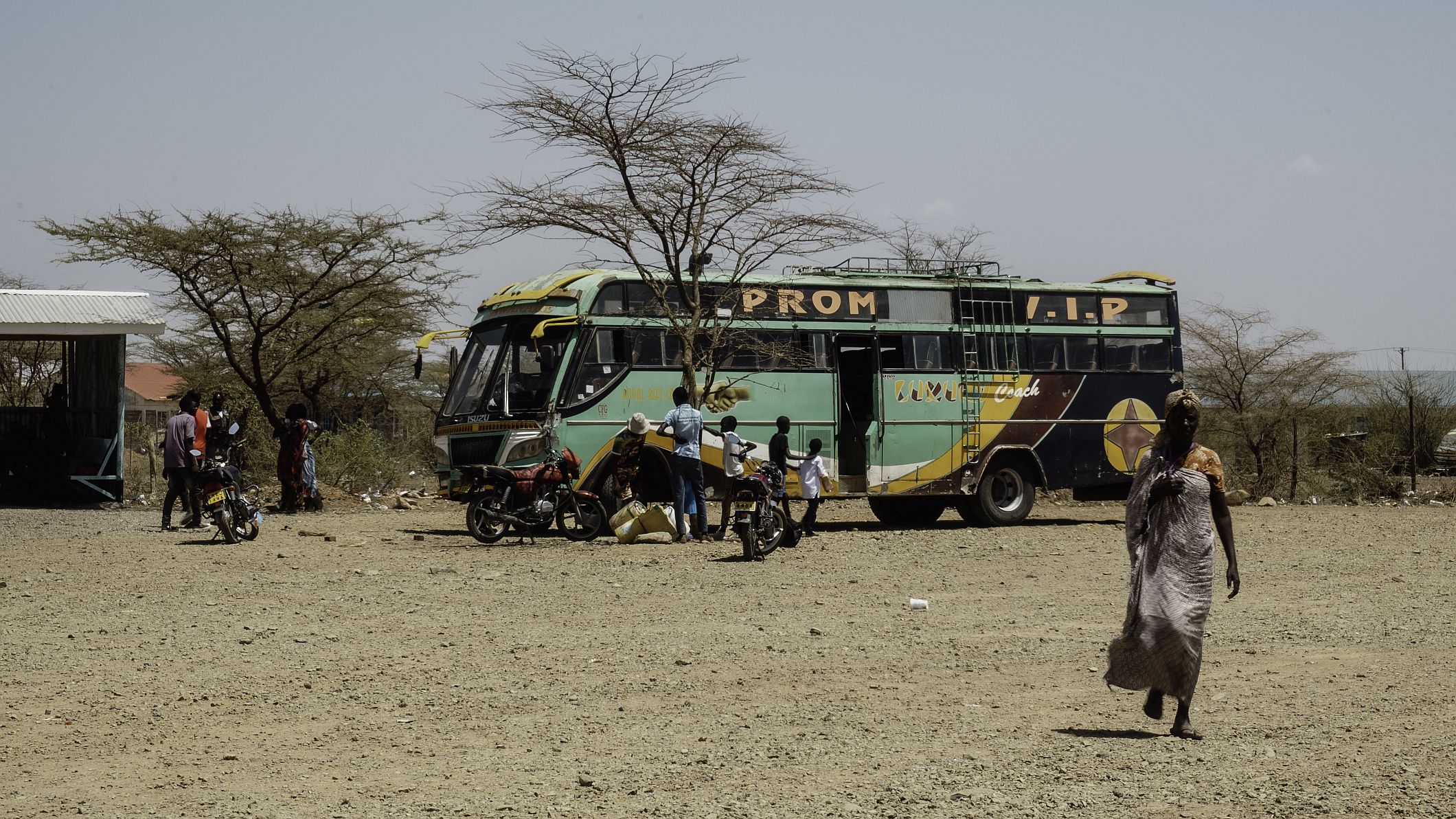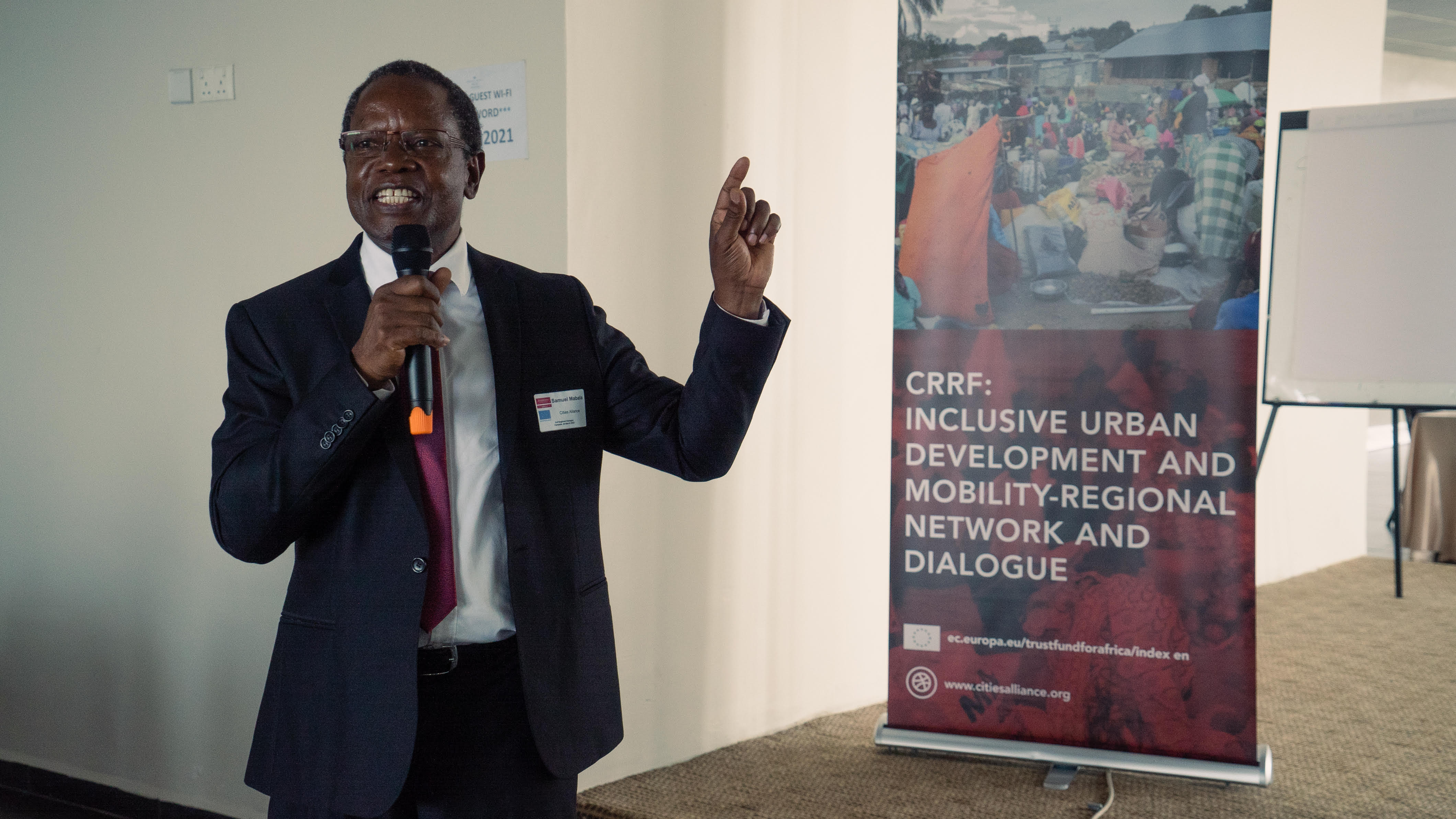At the 2023 Global Refugee Forum (GRF), Dr Sanya Wilson, National Mayor of Koboko Municipality and Chair of the Urban Authorities Association of Uganda, had a strong message for international donors:
Secondary cities hosting large populations of refugees need accurate data to attract direct funding. This will help cities integrate urban refugees and build their capacity to fulfil their role in meeting and contributing to global agendas.
Cities Alliance co-organised and participated in two panels highlighting the role of secondary cities in managing migration and implementing global agendas. It also co-published a guide for multistakeholder pledges on investing in climate-resilient, sustainable human settlements to benefit refugees and host communities, which was one of the eight outcomes of the 2023 forum.
Mayor Wilson joined the Cities Alliance delegation to the forum to provide the local government perspective on managing refugees. Like many secondary cities in the Horn of Africa, Koboko is struggling to host large numbers of refugees without receiving sufficient support from national governments or international donors.
Cities Alliance has partnered with Koboko on several successful initiatives to integrate refugees and build municipal capacity since 2020, with funding from the Swiss Agency for Development and Cooperation and the European Union.

A Model for Refugee Integration in Secondary Cities
The mayor highlighted four key points that were central to Koboko’s initiatives to integrate refugees and promote social cohesion:
- Collecting accurate data on refugee populations;
- Allowing cities to receive direct funding, as Koboko did from 2019–2022 to build and refurbish schools, health centres, and community business infrastructure that serve both vulnerable host communities and refugees;
- Engaging in proactive urban planning, and
- Sharing knowledge to amplify results.
He also encouraged donors to take advantage of local governance structures already in place to build capacity and avoid duplication of municipal service functions.
“The most effective way [is] to invest in municipalities hosting refugees. For example, if international partners want to invest in education and you have the education department already in place at the local level, there is no need to create new structures. By investing in local structure, you will help build the local resilience,” the mayor said.

Mayor Wilson stressed the importance of providing direct funding to cities, as the EU did in Koboko through the Comprehensive Refugee Results Framework (CRRF) Inclusive Urban Development and Mobility Action.
“Koboko’s ability to receive direct funding from the EU was transformational and allowed my city to accomplish in two years what otherwise would have taken 40 … It is really all about inclusiveness. It is very simple and can be replicated anywhere,” he said.
Koboko was able to advocate for more funding and attract the attention of international donors because the city had accurate data that included both refugees and host community, which is a rarity for refugee-hosting secondary cities in developing countries.
I would like to stress the importance of data to alleviate the current challenges of the refugee rights protection system around the world.
In 2018 and 2019, VNG and SDC invested in data-gathering in Uganda’s West Nile region. In Koboko, VNG partnered with Koboko Municipality, while in Arua, SDC (through Cities Alliance) partnered with the Uganda Bureau of Statistics (UBOS) and Arua Municipality to collect data on urban refugees.
Both initiatives were instrumental to refugee management in the two cities. Uganda’s national census did not include urban refugees, meaning they could not be planned for at the local level and no resources were allocated for them. They were considered only at the district level as part of refugee settlements.
In both Arua and Koboko, the data showed that a significant number of refugees were living in the municipalities. With this information, local authorities were able to lobby at the national and international levels for greater attention to be paid to urban refugees in the West Nile region.

The data attracted the attention of international donors to West Nile cities, and the municipalities of Arua and Koboko were able to obtain important funding from Cities Alliance, the EU, and SDC to provide better livelihoods for their refugees and host populations.
The initiatives have also influenced Uganda to begin including refugees in the national census, a move that will help cities plan better for the future.
The president of Uganda just launched a new formula for the next national census including refugee questions. This will show the real population living within each municipality, which will be helpful to plan adequately for future years.
Another key point Mayor Wilson raised was the importance of sharing knowledge to amplify results of successful initiatives. Through the CRRF programme and the platform for dialogue it provided, the mayor was able to share Koboko’s findings with mayors from seven other cities in the Horn of Africa. There is now a spillover effect that has inspired the other mayors to replicate Koboko’s activities in their cities.
To help meet the global agendas, Mayor Wilson encouraged international donors to provide funding to local refugee-led organisations (RLOs), as SDC is doing through Cities Alliance in Koboko and Arua with a grant to the South Sudanese Refugees Association (SSURA).
“It is not common that donor or international organisations give grants to a local RLO, but thanks to the history and their experience on the ground, they have been able to do so [with SSURA],” he said.
“I am happy that this was done in Koboko. This is the best way to help us meet the goals of the 2030 Agenda, as it is only through local organisations that we will be able to reach the most vulnerable.”




